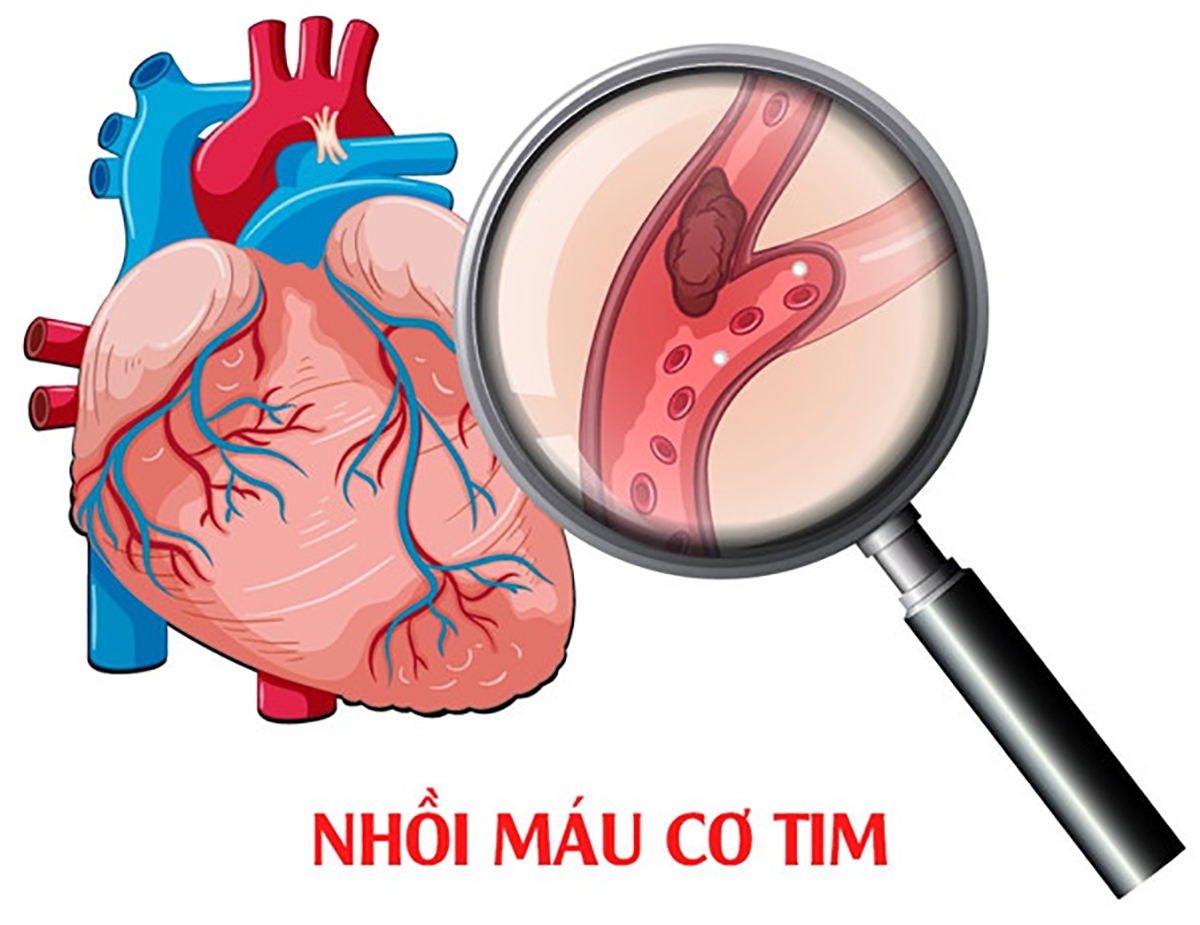Myocardial infarction has become a common disease in Vietnam. Every year, hundreds of thousands of patients are hospitalized for myocardial infarction in hospitals across the country. Although a heart attack is a dangerous disease, if we know the warning signs and get to the hospital early, we can save ourselves.
Causes of acute myocardial infarction
An acute myocardial infarction (heart attack) is a condition in which the heart muscle is deprived of blood supply and necrosis due to the sudden blockage of a coronary artery (blood vessel supplying the heart muscle) by a blood clot in the blood vessel. If blood flow is not restored quickly, an acute myocardial infarction can cause permanent heart muscle damage and death.
The cause of acute myocardial infarction is due to a ruptured atherosclerotic plaque in the coronary artery, blood cells including platelets and red blood cells attach to it, forming a thrombus causing sudden blockage of the lumen. Stops blood supply to the distal myocardium, resulting in myocardial ischemia. If this condition persists, it can lead to myocardial necrosis, heart failure or sudden death.

Some risk factors for plaque rupture: Smoking; Emotional, excessive stress; Excessive exertion; Inflammation or infection such as pneumonia; After trauma, surgery…
Heart attack and warning signs
A heart attack is a sudden blood clot that blocks a coronary artery (the blood vessel that feeds around the heart). This phenomenon prevents blood from flowing to the heart muscle and causes part of the heart muscle to die. Clogged large blood vessels can cause your heart to stop beating or it can cause a deadly arrhythmia.
We still think of a heart attack like the movies we see on television as someone suddenly clutching his chest and falling over. But that's not really the case, many people have only very mild chest pain or discomfort below the breastbone. These signs may be transient, then return to normal immediately, then pain again. The pain makes us feel short of breath, as if something is pressing on the chest, appearing in different places such as: behind the back, on the neck, above the jaw or below the stomach.
People who have a heart attack may not even notice this symptom until other painful symptoms occur.
First aid for people with myocardial infarction properly
According to Dr.Huynh Thanh Kieu - Head of Cardiology Department, Tam Anh General Hospital, Ho Chi Minh City, he guides some basic principles when giving first aid to people with acute myocardial infarction (heart stroke) as follows:
● Place the patient in a sitting or lying position, and loosen the belt and clothing to facilitate blood circulation.
● Call 911 or the nearest hospital emergency number. If you can't wait for an ambulance to arrive, take the initiative to hire a taxi or drive the patient to the hospital yourself.
● Have the patient chew and swallow an aspirin while awaiting emergency care. Aspirin helps prevent blood clots, reducing the risk of heart damage. Do not take aspirin if the patient is allergic to the drug.
● Cardiopulmonary resuscitation (CPR): Perform as soon as possible because for every 1 minute delay, the patient loses 10% of the chance of survival.
Source: Tam Anh General Hospital

See more product information here.